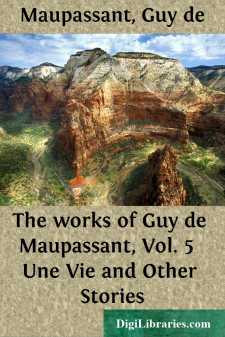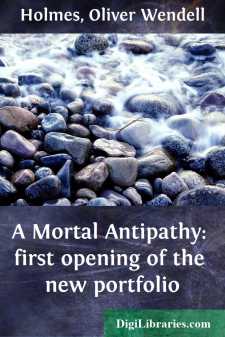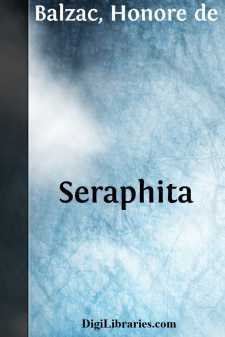Literary Collections
- American 84
- Ancient, Classical & Medieval 14
- Asian 1
- Australian & Oceanian 1
- Canadian 55
- Continental European 121
- English, Irish, Scottish, Welsh 179
- Essays 160
- General 24
- Letters 46
- Middle Eastern 1
Literary Collections Books
Sort by:
by:
Honore de Balzac
THE DESERTED WOMAN In the early spring of 1822, the Paris doctors sent to Lower Normandy a young man just recovering from an inflammatory complaint, brought on by overstudy, or perhaps by excess of some other kind. His convalescence demanded complete rest, a light diet, bracing air, and freedom from excitement of every kind, and the fat lands of Bessin seemed to offer all these conditions of recovery....
more...
by:
Harold Bindloss
PROLOGUE Fairmead, Western Canada. It is a still, hot day in autumn, and there is a droning of mosquitoes where I sit by an open window, glancing alternately out across the Assiniboian prairie and somewhat blankly at the bundle of paper before me, ready to begin this story. Its telling will not be an easy matter, but one finds idle hours pass heavily after a life such as mine has been, and since the...
more...
The most robust and masculine of recent French novelists is a typical Norman, sprung from an ancient noble family, originally of Lorraine, but long settled in the Pays de Caux. The traveler from England towards Paris, soon after leaving Dieppe, sees on his left hand, immediately beyond the station of St. Aubin, a handsome sixteenth-century house, the Château de Miromesnil, on a hill above the railway....
more...
by:
Edmund Gosse
PREFACE: ON FLUCTUATIONS OF TASTE When Voltaire sat down to write a book on Epic Poetry, he dedicated his first chapter to "Differences of Taste in Nations." A critic of to-day might well find it necessary, on the threshold of a general inquiry, to expatiate on "Differences of Taste in Generations." Changes of standard in the arts are always taking place, but it is only with advancing...
more...
by:
Jeremiah Curtin
Introduction Eliza Orzeszko, the authoress of "The Argonauts," is the greatest female writer and thinker in the Slav world at present. There are keen and good critics, just judges of thought and style, who pronounce her the first literary artist among the women of Europe. These critics are not Western Europeans, for Western Europe has no means yet of appreciating this gifted woman. No doubt it...
more...
INTRODUCTION. "And why the New Portfolio, I would ask?" Pray, do you remember, when there was an accession to the nursery in which you have a special interest, whether the new-comer was commonly spoken of as a baby? Was it not, on the contrary, invariably, under all conditions, in all companies, by the whole household, spoken of as the baby? And was the small receptacle provided for it commonly...
more...
by:
James De Mille
CHAPTER I. CONSISTING MERELY OF INTRODUCTORY MATTER. This is a story of Quebec. Quebec is a wonderful city. I am given to understand that the ridge on which the city is built is Laurentian; and the river that flows past it is the same. On this (not the river, you know) are strata of schist, shale, old red sand-stone, trap, granite, clay, and mud. The upper stratum is ligneous, and is found to be very...
more...
Perhaps the reader may not feel in these papers that inner solidarity which the writer is conscious of; and it is in this doubt that the writer wishes to offer a word of explanation. He owns, as he must, that they have every appearance of a group of desultory sketches and essays, without palpable relation to one another, or superficial allegiance to any central motive. Yet he ventures to hope that the...
more...
CHAPTER I THE OLD SEA-DOG AT THE “ADMIRAL BENBOW” Squire Trelawney, Dr. Livesey, and the rest of these gentlemen, having asked me to write down the whole particulars about Treasure Island, from the beginning to the end, keeping nothing back but the bearings of the island, and that only because there is still treasure not yet lifted, I take up my pen in the year of grace 17—, and go back to the...
more...
by:
Honore de Balzac
CHAPTER I. SERAPHITUS As the eye glances over a map of the coasts of Norway, can the imagination fail to marvel at their fantastic indentations and serrated edges, like a granite lace, against which the surges of the North Sea roar incessantly? Who has not dreamed of the majestic sights to be seen on those beachless shores, of that multitude of creeks and inlets and little bays, no two of them alike,...
more...











